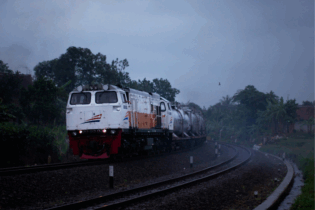Transnet Freight Rail embarks on the lean six sigma methodology. This method was introduced to Transnet Freight rail at the beginning of 2012/2013 financial year, as part of the Business Units implementation. The ODP (Operations Development and Performance) department aim is to improve TFR’s performance within operations nationally, to ensure cost-effective decision making and to also achieve scheduled railway to meet customer demands by delivering an efficient and reliable service to its customers.
The methodology perfectly aligns with the company’s Market Demand Strategy, which seeks to drive volume growth, enhanced accountability, governance and improved operational efficiencies through continuous improvement and problem solving methodologies, such as Lean Six Sigma. These methodologies will also assist in driving the road to rail strategy, which aims to boost the economy of the country, whilst also driving the reduction of carbon initiatives for a greener South Africa. The Lean Six Sigma is used for eliminating waste and reducing variability to achieve consistency in our performance to enable TFR to offer a more predictable service to its customers. Waste Reduction is the first step, and this is achieved through applying lean principles. Waste reduction means getting rid of non-value adding activities, improving process time, reducing/eliminating waiting, thus increasing output rate and capacity. This is followed by variability reduction using Six Sigma tools which follow the DMAIC (Define, Measure, Analyse, Improve, Control) methodology.It is through this process that we will get closer to a Six Sigma performance (3.4 defects per million opportunities), giving us the compelling advantage of excellent customer service, since we aspire to be one of the best railways in the world.
TFR utilised the CSDP (Competitive Supplier Development Programme) platform with GE (General Electrics) to kick off the implementation of Lean Six Sigma across all departments in the business. Thus far GE has trained over 100 TFR employees, and the TFR Executive Team on Lean and Six Sigma Principles, two more classes of Lean will take place between November 2012 and February 2013. TFR as a learning organization will collect information on events and success stories that have occurred internally and externally to be used as initiatives for continuous improvements, learning and information sharing. This will be achieved by aligning organisation’s standards and their personnel, creating cross functional teams, establishing rewards and recognition programmes and maintaining systems that support good knowledge management.





